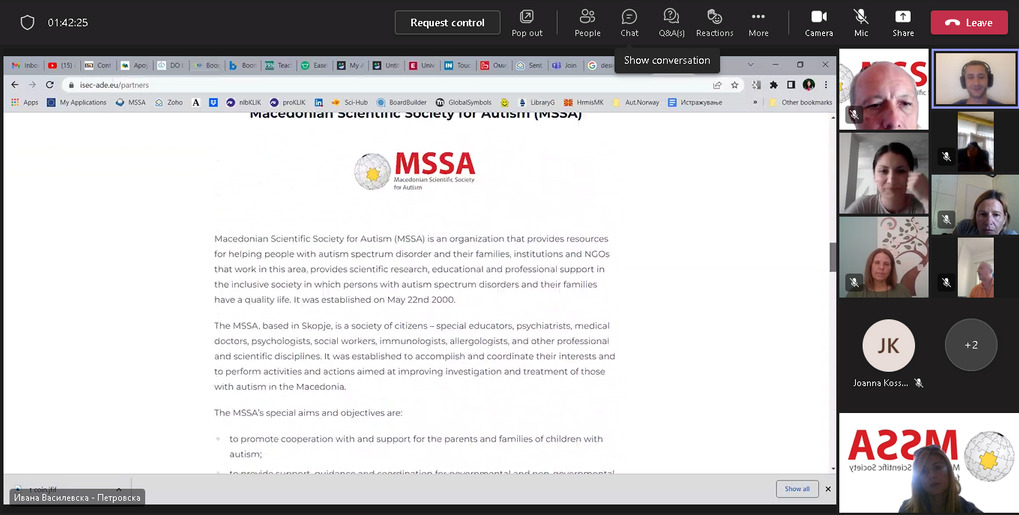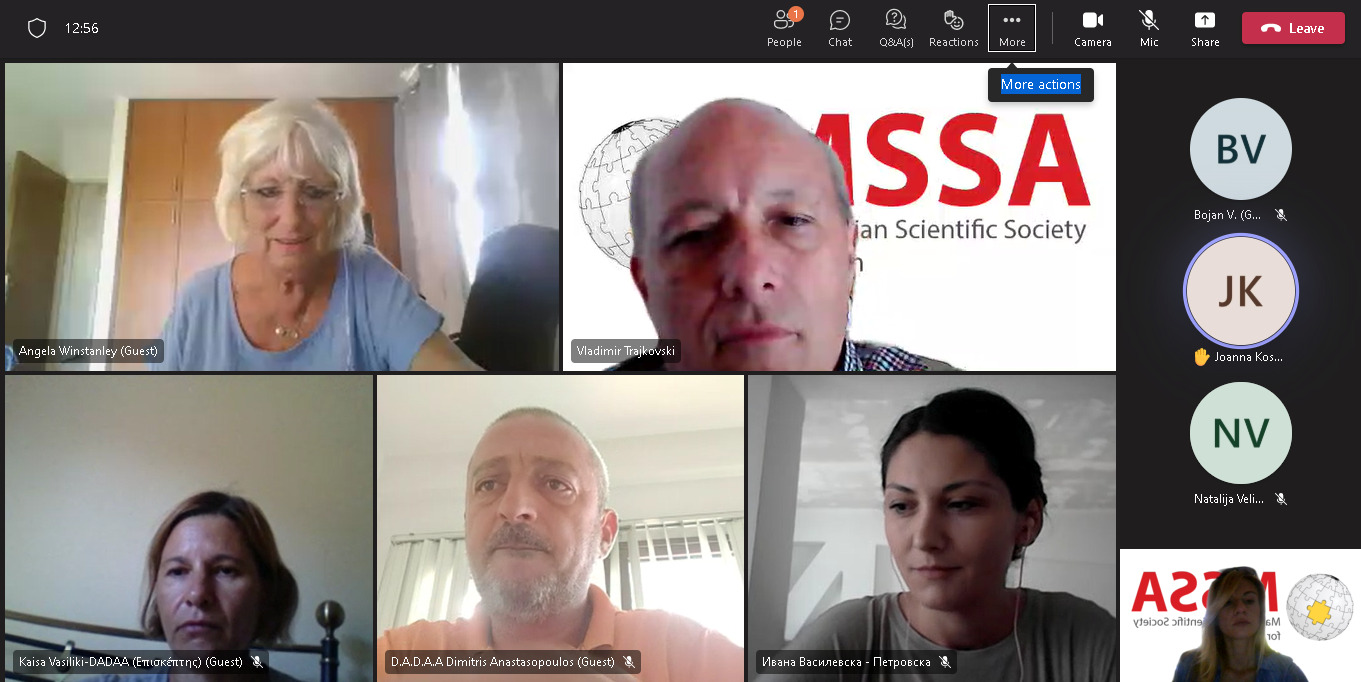ISEC-ADE second transnational meeting on the 12 and 13 September 2022
By Ivana Vasilevska Petrovska
The ISEC-ADE project held its second transnational meeting on the 12 and 13 September 2022, gathering project partners from 4 different countries online to exchange the latest updates about the project and prepare the next results to be delivered. This meeting was due to take place in Skopje, Macedonia but due to the travelling challenges and other difficult circumstances that some partners faced, partners decided to host the meeting virtually.
The meeting was organized by MSSA via an online conferencing platform. Almost a year in to the project, at this meeting we confirmed the accomplishment of three key milestones in the Software Development Life Cycle.

In the Planning and Requirement Analysis the consortium acquired input from all stakeholders, including teachers, special educators, assistants, learners and parent/careers. We will examine current best practices, identify strengths and weaknesses of the current digital solutions with improvement as the goal.
Having clear visualization of the answer to the question ‘What do we what to build?’, we defined and documented the product requirements, done through an SRS (Software Requirement Specification) document which consists of all the product requirements to be designed and developed.
Next, a design approach for the product architecture is proposed and documented in a DDS - Design Document Specification. Based on the requirements specified in SRS, Autism Institute proposed a DDS, that was reviewed by all partners and following an constructive discussion the design approach was approved.

Findings From the Requirements Analysis
In the requirements analysis phase, our priority was to use an exploratory and participatory approach that will involve the end users of our results. For this purpose, we conducted a series of stakeholder FGDs to understand existing practices, needs, barriers, and goals for the use of digital education tools and content for learners with ASC and ID.
A series of ten FGD (five educators groups and five parents and learners groups) were conducted in the period of April and May 2022. Two FGD were conducted in each region: in Bulgaria, Cyprus, Greece (Eastern Macedonia and Trace, and Western Greece) and North Macedonia. The FGDs were conducted with educators and parents separately, while learners participants were accompanied by their parents in the parents groups. This separation helped ensure that members of both stakeholder groups would feel more comfortable in freely sharing information about their experiences.
The information elicited from these discussions are presented in the FGDs report publication, that will be available on our website soon. The main conclusions of the study centre upon digital education issues of direct and immediate relevance to learners and their teachers that must be addressed. These issues include:
- Accessibility as the concept of whether a product or service can be used by everyone—however they encounter it. It reflects the ease or difficulty for users to access a particular educational technology, tool or digital content.
- The second theme concerns acceptability and cultural appropriateness, understood as the perceived fit, relevance, or compatibility of the technology to a particular user, provider, community or setting.
- The third theme looks at the issue of access to appropriate IT resources at the school level – hardware, software, internet access and affordability as the true cost of implementing a particular technology. The construct of affordability depends on the costs of the particular technology, the cost of implementation, and the cost of accessing the technology in a particular location.
- The fourth theme concerns creation of digital content that is of high quality, and individualized, designed for the needs of the learner.
- The fifth theme reflects benefits of digital learning and teaching as perceived by the relevant stakeholders.

By grounding information brought forth by stakeholders in relevant concepts of web content accessibility inclusive design, we propose recommendations and guiding principles for the development of interfaces accessible to learners with ASC and ID. Recommendations address the physical, intellectual and social dimensions of web accessibility. Additional recommendations address the development of accessible digital learning tools and content that allow for integration of inclusive and SEN teaching practices. Along with allowing the developers to know what they should consider when developing appropriate solutions for learners and teachers, design recommendations can contribute to raise awareness of these professionals about the characteristics of persons with ASC and ID and how technology can be valuable to them. Following recommended guidelines for proper software design, designers and developers can increase learning access and reduce barriers for learners.
